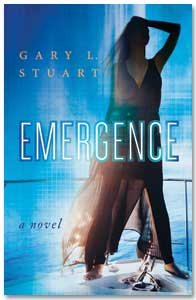Good thing this is a blog. I can write informally. Good thing because the bad guys seem to be catching up with the good guys every day. There are lots of vixens, villains, and rapscallions out there. But for every one of those, there are two heroes, heroines, Knights in shining armor, and Dames in combat boots.
Take President Volodymyr Oleksandrovych Zelenskyy of Ukraine. His armor is a tee shirt, but his resolve is sky high. Take Vladimir Vladimirovich Putin. Please take Putin.[1] Everyone loves Zelensky. Nobody loves Putin. Like Jekyll and Hyde, they are mirror opposites. Jekyll epitomizes goodness, as does Zelensky. Hyde is evil personified, rhymes with putrefied—or Putin for short. Ironically, Putin is short in more ways than his physique. Zelensky is taller, by about three feet—a yardstick taller in kindness. Putin is shorter, like a mushroom in a swamp. Zelensky lives for one purpose—to save his country. Putin lives to destroy—everything and everyone in his way.
But we all know that. What ethical norms apply when we write about good guys and bad guys? Is there a moral underpinning? Jonah Goldberg[2] thinks so. His nationally syndicated column titled “Moral Clarity of ‘Good Guys vs. Bad Guys’” is the prompt for this blog.[3] He defined the war in Ukraine as a “contest between good guys and bad guys.” And he sought moral clarity of this East European war by writing about it in terms of “choices,” the “moral failings of realism,” and by assessing Putin’s role in the war as a “monstrous crime.” He sounded the gong of history and civilization by characterizing Putin as “objectively evil.” He cited widely known reality in every country except Russia. The bad guys, he said are “deliberately targeting civilians, sanctioning mass executions and rape, not to mention the international wholesale erasure of cities.”
Mr. Goldberg’s central point is moral clarity. “It is in America’s interest to be seen as a nation that honors its commitments, both moral and legal.” True enough. But is that the right spear, the right context, the right moral norm? Is that all there is to it? Should we rise to “be seen” as honoring our commitments? Or should we actually honor them? Our moral norms and ethical goals are beneficence, non-maleficence, autonomy, justice; truth-telling and promise-keeping. And given our partisan nature and our dysfunctional Congress, we are challenged daily. One side’s beneficence is the other side’s barbarity. The 117th US Congress is largely unified on Zelensky’s side, but there are a few Trumpers who side with Putin because he is anti-NATO, and so are they.
What moral obligations does one country have to another country? For starters, the U.S. has a “unique capacity and a moral obligation to cultivate alliances with free nations and lend support to democracy advocates in authoritarian or transitional settings. Doing so ultimately protects the freedom, security, and prosperity of Americans by promoting a stable international order, preventing armed conflicts and failed states, and ensuring the support of like-minded global powers.”[4] That is ethically why we support Zelensky and denounce Putin. By supporting Ukraine, we protect our freedom, security, and prosperity by helping them keep theirs. We hope to prevent more Putin driven armed conflicts by providing arms to Zelensky. And we hope to engage other “like-minded global powers,” who see Putin the way we do—a war lord in a striped suit.
The ethics of bad guys is on full display in Russia’s authoritarian political system. Russia is not invading and destroying Ukraine. Putin is. Russia’s authoritarian[5] is Putin. He alone ministers Russia’s “Loyalist security forces, a subservient judiciary, a controlled media environment, and a legislature consisting of a ruling party and pliable opposition factions, [allowing] the Kremlin to manipulate elections and suppress genuine dissent. Rampant corruption facilitates shifting links among bureaucrats and organized crime groups.”[6] That’s how bad guys start and fight wars.
Ukraine is a democracy. Russia is a dictatorship. So, the battle for Ukraine today is the frontline of the fight for democracy. “If nothing else, the emotional outpouring for Ukraine can remind us of why we must fight for our own democracy. When Zelensky and his people talk about ‘freedom’ and ‘democracy’ they aren’t just spouting slogans. They are risking their lives. The images from Kyiv display the beauty and the power of a system based on the accumulated choices of millions of citizens, and why we must fight for it. That fight is something we must wage here.”[7] It’s an ethical fight.
[1] In recognition of Henry “Henny” Youngman.
[2] Jonah Jacob Goldberg (born March 21, 1969) is an American conservative syndicated columnist, author, political analyst, and commentator. https://en.wikipedia.org/wiki/Jonah_Goldberg
[3] https://www.post-gazette.com/opinion/Op-Ed/2022/04/23/ukraine-russia-moral-clarity-good-guys-bad-guys-putin-jonah-goldberg/stories/202204230017
[4] https://freedomhouse.org/article/principles-safeguarding-us-democracy
[5] Authoritarianism is a form of government characterized by the rejection of political plurality, the use of strong central power to preserve the political status quo, and reductions in the rule of law, separation of powers, and democratic voting. https://en.wikipedia.org/wiki/Authoritarianism
[6] https://freedomhouse.org/country/russia
[7] https://www.brennancenter.org/our-work/analysis-opinion/ukraine-stakes-democracy?

I am an author and a part-time lawyer with a focus on ethics and professional discipline. I teach creative writing and ethics to law students at Arizona State University. Read my bio.
If you have an important story you want told, you can commission me to write it for you. Learn how.






 I am an author and a part-time lawyer with a focus on ethics and professional discipline. I teach creative writing and ethics to law students at Arizona State University.
I am an author and a part-time lawyer with a focus on ethics and professional discipline. I teach creative writing and ethics to law students at Arizona State University.  My latest novel is Emergence, the sequel to Let’s Disappear.
My latest novel is Emergence, the sequel to Let’s Disappear.  If you have an important story you want told, you can commission me to write it for you.
If you have an important story you want told, you can commission me to write it for you.